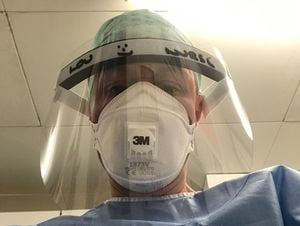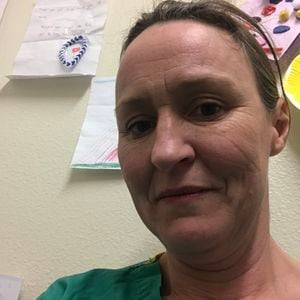Former Shropshire nurse speaks out over developing 'mental health crisis'
A former NHS nurse who launched her own mental health training school has spoken of the need to take action on the developing 'mental health crisis'.

Louise Madeley lives in Shropshire and runs the school to help people recognise the importance of mental health.
After three decades in frontline healthcare, she wants to help people spot the early warning signs of a mental health problem or seasonal affective disorder (SAD), which she says affects up to three in 100 people in the UK at some point in their life.
“SAD is due to the lack of sunlight which can affect our mental health - it’s because we have less vitamin D, which we need to help regulate our mood," said Louise.
She said that symptoms can range from low mood to debilitating depression.

“For some, the lead-up to Christmas is exciting - Christmas markets, work parties and catching up with family and friends but for others it’s a really difficult time of year,” she added.
“And while mental health is a lot harder to spot than physical health issues, there are some things you can look out for when you’re worried about a friend, family member or colleague.”
Louise launched Madeleys First Aid Plus, based in Much Wenlock, after experiencing first-hand the impact of the pandemic.
“I’ve seen the impact the last 18 months has had on people with my own eyes,” she said.
“There’s a real mental health crisis developing at the moment and we need to take action.”
Her training school has a specific focus on teaching the next generation the importance of looking after both your physical and mental health - for life - with ‘mini medics’ training in place for children as young as eight.
“With physical health we know the signs to look out for - rashes, lumps, aches and pains,” she said.
“And most people can apply a plaster or wrap an arm in a sling. But mental health signs are just as important.
"Is your colleague or friend quieter than usual, more distant, later than usual to work - or are you yourself not feeling quite ‘right’?”
Louise says early warning signs of a mental health problem or SAD can include losing interest in activities that were previously enjoyed; underperforming at work with no apparent explanation; increased anxiety levels, feeling exhausted and restless; isolating themselves and not wanting to socialise; changes in appetite and perception and self-harming behaviour.
But the former NHS nurse recognises how difficult a conversation about mental health can be.
“While it’s tricky knowing what to say when you notice a change in someone, starting a conversation can help tackle the stigma surrounding mental health,” Louise added.
“Think carefully about what you want to say before starting the conversation and make sure you listen to them carefully without personal judgement.
“Listening to what the person tells you can sometimes be difficult to hear, especially if you’re a close family member or friend, so you need to allow time for reflection and then signpost them to professional help.”
To help enhance your mood, Louise recommends reading a book, exercising regularly, taking up a hobby, getting enough sleep, listening to music or taking a holiday.
To find out about Madeleys First Aid Plus course, visit madeleysfirstaidplus.co.uk





